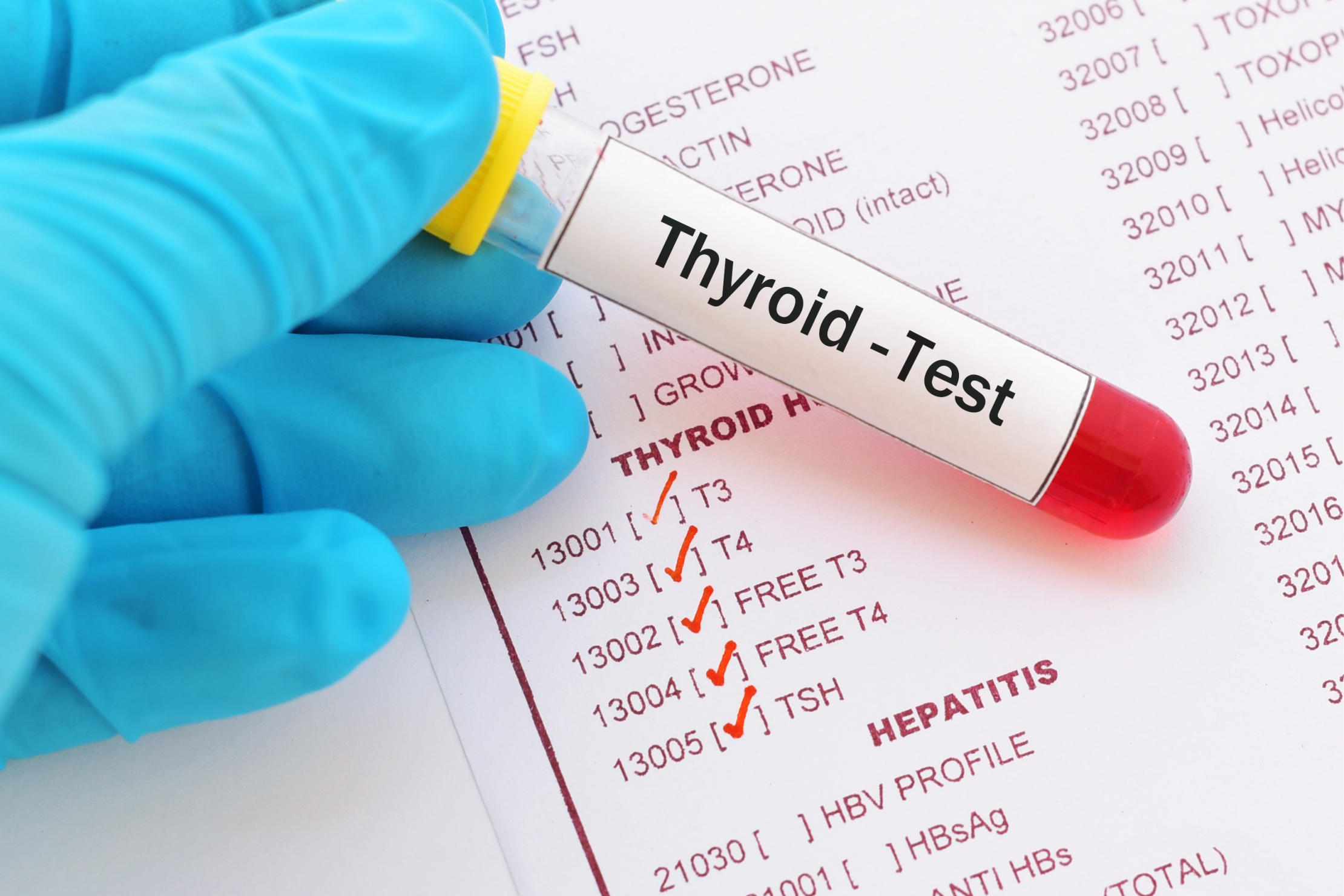
Thyroid, also called ‘Master gland’ of the endocrine system regulates body metabolism. It secretes two important hormones viz., T3 (triiodothyronine) and T4 (thyroxine). Any kind of irregularities in the levels of T3 and T4 hormones might cause thyroid and thyroid-related disorders.
Hypothyroidism is a metabolic condition where the thyroid gland does not produce enough thyroid hormones. It’s symptoms include weight gain, lack of energy and depression.
Hyperthyroidism is a metabolic disorder which involves excess secretion of thyroid hormones. It’s symptoms involve weight loss, anxiety and tremors.
It is important to keep a regular tab on your thyroid function with the help of thyroid tests.
Thyroid Function Test:
Thyroid blood tests measure the levels of T3, T4, Thyroid Stimulating Hormone (TSH), Free T3 and Free T4 in blood. Thus, this test helps to effectively diagnose hyperthyroidism or hypothyroidism and other thyroid-related disorders.
Blood test interpretation:
The below mentioned blood test interpretation helps to diagnose/detect hyperthyroidism, hypothyroidism and subclinical hypothyroidism.
| Diagnosis | TSH test | T3 test | T4 test |
|---|---|---|---|
| Hypothyroidism | Elevated | Low | Low |
| Hypothyroidism | Suppressed | Elevated | Elevated |
| Subclinical hypothyroidism | Decreased | Normal | Normal |
Benefits of Regular Thyroid testing:
- This testing evaluates the level of thyroid hormones. Thus, helps to determine the type of thyroid disorder.
- It checks the effectiveness of treatment/management plan for thyroid disorders.
Thus, regular thyroid testing not only helps in diagnosis of thyroid but also helps to determine thyroid-related disorders like high cholesterol, hypertension and diabetes.
* Thyroid patients must undergo regular thyroid testing every 6-8 weeks as per doctor’s advice.










